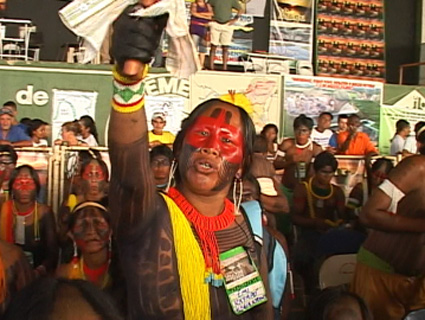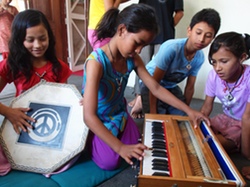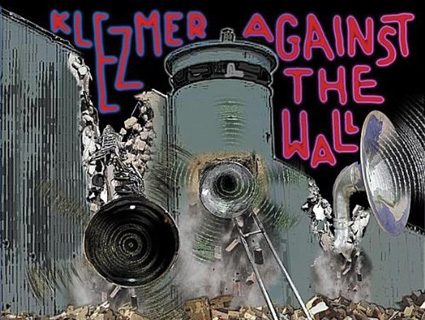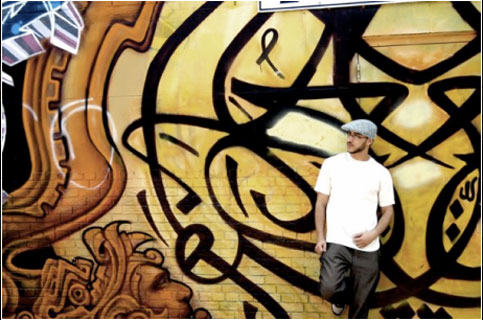
A Kayapo woman protests the damming of the Xingu River. Photo: Cultures of Resistance
Out this week on DVD, director Iara Lee‘s new documentary, Cultures of Resistance, serves as a sharp reminder that at any given moment, a sobering portion of the world is embroiled in political turmoil. The film hops us from one fraught location to the next, showing the graphic truths of oppression, civil war, and industrialization. Lee’s purpose, though, is not to send you into a permanent funk, but to highlight artistic forms of resistance and protest all over the globe.
Lee finds visual artists—political cartoonists in Liberia and Brazil, graffiti writers and calligraphers in Iran and Syria. She finds resistance onstage at the International Poetry Festival of Medellin in Colombia, and at the annual FESPAD dance festival in Rwanda. We see the Kayapo, an indigenous Amazonian people, dancing in protest of the proposed damming of the Xingu River. But nothing is more powerful than the music, that universal medium known for bridging the gaps that divide us. (You know: religion, language, money. That stuff.) There are too many worthy musicians in the film to feature them all here, but check out these tracks until you have time to watch Cultures of Resistance yourself.
In Iran, we meet Kayhan Kalhor, a master of the kamancheh, a sort of upright Persian fiddle. Being from a Kurdish family, Kalhor was so moved by the 1988 gassing of Iraqi Kurds in Halabja that he wrote an album dedicated to the tragedy called Silent City. Here, he plays a selection from the record with string quartet Brooklyn Rider:
Younger Iranians are also embracing music as a form of political expression. Rap, in particular, is a newly revered genre among Middle Eastern youths, as evidenced by docs like Slingshot Hip-Hop and the group Hich Kas in Cultures of Resistance. Cultures also features hip-hoppers Katibe 5, Palestinians living in a refugee camp in Lebanon. Watch them flow:
Across the world, Cultures visits Brazilian hip-hop artist MV Bill, an activist in the notorious Rio favella City of God. This song, “Falcao,” rants against limited options for impoverished children and the vicious cycles of drugs and violence poor Brazilians face:
In Nigeria, Cultures visits the son of music legend Fela Kuti, who once said, “Music is the weapon.” Femi Kuti carries on his father’s impressive legacy with his resistance songs. “I was 13 when my father was singing about all this,” says Kuti. “I’m 47 now, and I’m still singing about the same things my father was fighting for in his time.” An uphill battle, to be sure, but not one he has plans of abandoning. Listen to Femi Kuti’s “Fight to Win” here:
Click here for more music features from Mother Jones.













